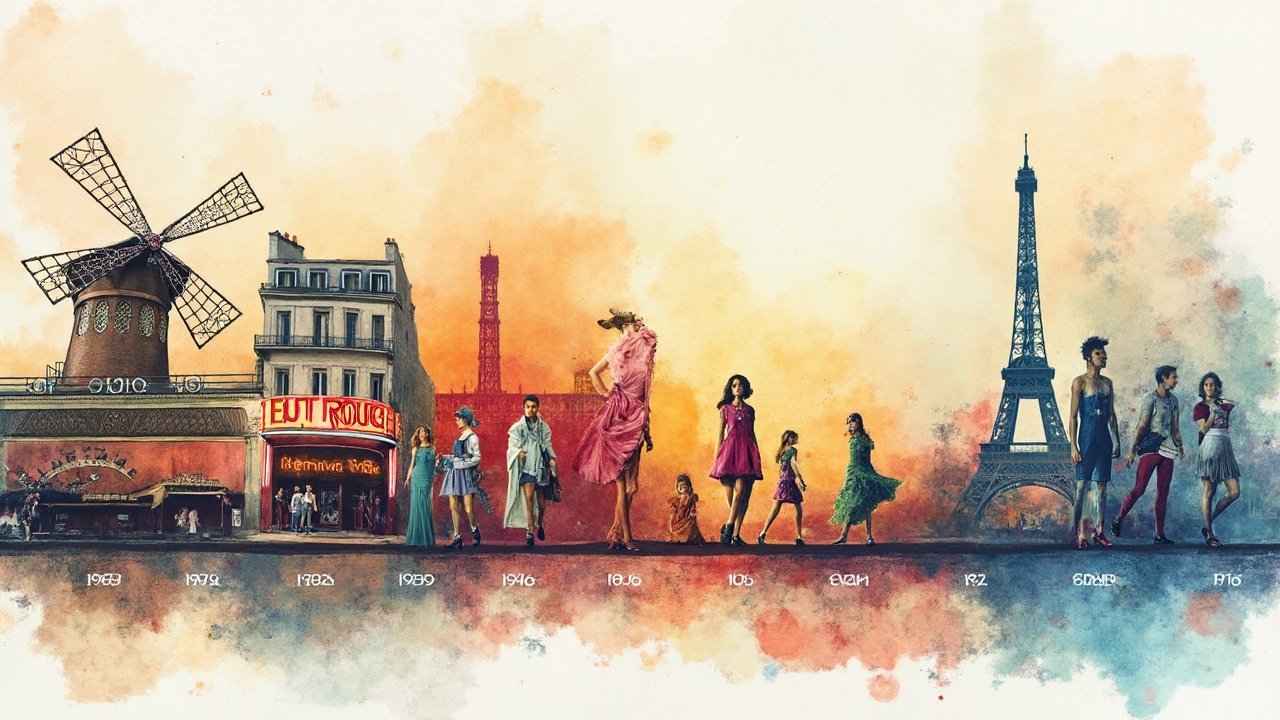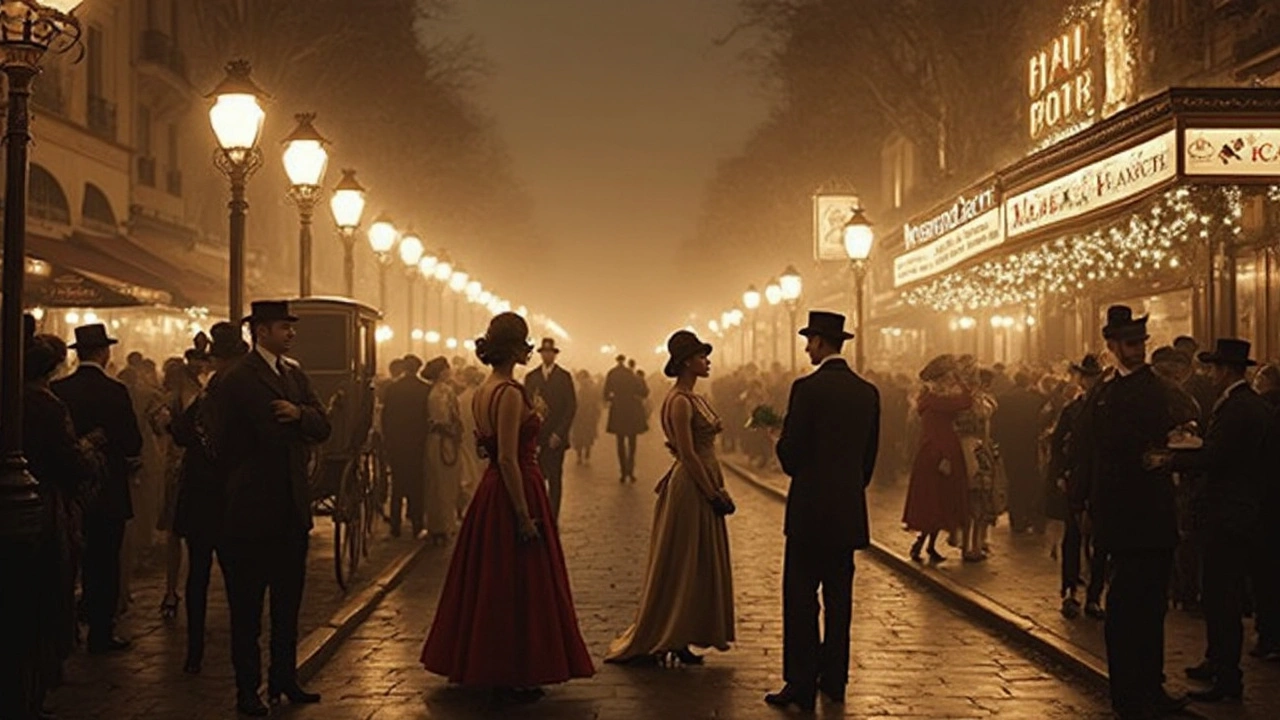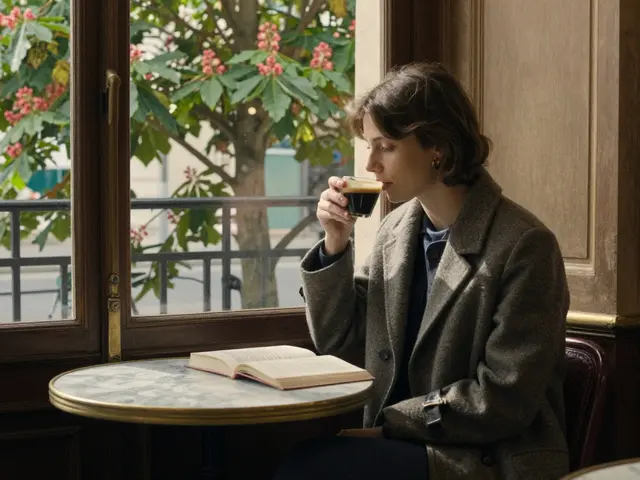When you think of Paris, the city of love and lights, it's hard not to envision its famous cabarets and lively nightlife. But tucked away, there’s another dimension to Parisian culture that's been around just as long—the escort services. Believe it or not, this isn't some new-age gig. It's been part of the city’s fabric for ages, weaving through the streets with as much charisma as the Seine through the city's heart.
Let’s rewind to understand how it all got started. Centuries ago, Paris was already known for its vibrant social life, and escort services naturally grew out of this dynamic environment. These services were not just about companionship; they played significant roles in the social exchanges of their time. People mingled in salons, and escouches (a fancy old French term for “escorts”) were often seen at the center of these gatherings, using their wit and charm to enthrall the elite.
Fast forward a few centuries, and you’ll notice how societal attitudes began changing. As Paris evolved through revolutions and cultural shifts, so did the perception and roles of escorts. They adapted and often thrived, reflecting the city’s ever-changing social palette.
- Early Days of Escort Services
- Changing Social Attitudes
- The Legal Landscape
- Iconic Figures and Stories
- Modern Developments and The Future
Early Days of Escort Services
Way back in the day, escort services in Paris weren't what you might think of today. Imagine a time when the city was bustling with aristocrats, artists, and thinkers—all mingled together in a vibrant social scene that was both chic and, let's face it, a little bit wild.
In the 17th and 18th centuries, Paris was the epicenter of culture in Europe. During this time, so-called "escouches" were not only companions but played a part in the social fabric, frequently found in salons entertaining the crème de la crème. These early escort services weren't just transactional; they were integral to social interaction.
Escort services began as a more discreet affair, often involving well-connected women, sometimes referred to as courtesans, who provided not just companionship but also acted as muses and confidantes for influential men. This wasn't a low-profile gig; these women were celebrities in their own right, navigating the corridors of power and culture.
Social connections and wit were the currency of this era, and being seen with the right escort could boost a gentleman's prestige. The art of conversation was prized, and escorts played key roles in the salons that defined the social landscape of Paris. They helped shape opinions and were often privy to the political and cultural movements brewing beneath the surface of society.
This early structure set the stage for the evolution of escort services seen in later years. It shows us how deeply intertwined these services have been with the city’s social and cultural evolution. From informal gatherings to more established services, escorts have always been a part of the Parisian tableau, showcasing the city's unique blend of style, intellect, and, at times, secrecy.
Changing Social Attitudes
The perception of escort services in Paris has certainly shifted over the years. Back in the day, escorts were often seen as part of the privileged elite's circle, playing their roles in social gatherings without much fanfare or scandal. It wasn't uncommon for these social butterflies to be present at high-profile events, where their presence was not only accepted but sometimes expected.
Moving into the 19th and 20th centuries, things began to change. Paris, often at the forefront of social movements, saw shifts in how people viewed escort services. The two World Wars and various socio-political changes brought about more openness in discussing previously taboo subjects. However, there was also a period where such services became more private, amid growing conservatism in certain urban areas.
Interestingly, the 1960s cultural revolution played a huge role in altering perceptions again. As cities across the world began to embrace freedom and individuality, Paris was no exception. Escort services began to be seen less as a secretive enterprise and more as part of the broader spectrum of lifestyle choices available.
In recent years, the digital age transformed everything. With the internet breaking down barriers and allowing more open discussions, people's attitudes are becoming more accepting. Escort services are now largely viewed as legitimate professions, with a focus on safety, consent, and mutual respect being highlighted more than ever before.
Today, many see these services not just as a transaction but a part of the vibrant tapestry of the Paris nightlife. It's all about choice and freedom, matching the ever-changing social dynamics of this iconic city. And thanks to some reliable reports, we know these changes are reflected in increased transparency and professionalism in the industry today.

The Legal Landscape
Paris, like many places, has seen its escort services operating in a gray area for years. Navigating the legal framework hasn't always been simple, and the rules have morphed quite a bit over time.
Back in the days, there wasn't much formal regulation. The 1800s and beyond saw a mix of laissez-faire attitudes mixed with sporadic crackdowns, depending on the political winds. However, modern times couldn't maintain this ambiguity, especially as social norms shifted worldwide.
It's worth noting that prostitution itself was legalized in France in 1946, but with stipulations; brothels, known as 'maisons closes,' were shut down. While selling services isn’t a crime, soliciting in public is illegal, which makes the framework for the escort industry still quite tricky to navigate.
In 2016, France introduced controversial laws that made it illegal for clients to pay for sex. It’s a move aimed at reducing demand, but it stirred quite a debate. Opponents argue it drives the industry underground, making it less safe for escorts, like those in Paris.
Here's a glimpse at some key moments in Paris’ escort legal landscape:
- 1946: Brothels banned, selling services becomes legal under certain conditions.
- 2016: New law fines buyers, creating a kerfuffle over effectiveness and safety.
Despite these laws, Paris remains a hub for escorts. The legal scene is constantly shifting, reflecting broader changes in society’s views on these services. It's always a balancing act between regulation and the cultural fabric that proudly, and sometimes discreetly, supports the arts of companionship.
Iconic Figures and Stories
Paris, with its dazzling nightlife, has been home to many unforgettable figures in the world of escort services. These individuals left a mark not just in the pages of history but also on how society viewed escorts in their time.
One such legendary figure was Liane de Pougy, a renowned beauty and celebrated courtesan in the Belle Époque era. She wasn't just known for her mesmerizing presence but also for her outrageous lifestyle and illustrious lovers, which included royals and aristocrats. Liane’s stunning success story paints a picture of how influential escorts were in Paris during the late 19th century.
Then there was Cora Pearl, known far and wide not just for her beauty but also for her extravagant spending and cheeky charisma. She was a sensation in the 1800s, not just as an escort but as a cultural icon, mingling with the elite of her time.
Fast forward to the more recent 20th century, and we find Martine de Richeville, known for single-handedly reshaping perceptions of escort services. She turned her escort reputation into a business empire, paving the way for modernization in the industry.
These stories aren't just about glitz and glamour. They highlight the impact escorts had on the Parisian social scene and the broader societal narratives about gender and power. From influencing fashion trends to sometimes even political decisions, these figures were more than companions—they were influential in shaping the cultural vibe of Paris.
Such stories also show how the concept of an escort evolved over the decades. Influencing art, literature, and even the law, these individuals had a lot more happening behind the scenes than one might assume. It's fascinating to see how these lives, often unconventional, intersected with the broader historical canvas of Paris.

Modern Developments and The Future
These days, the world of escort services in Paris is a way different scene from the smoky salons of old. The advent of the internet has dramatically reshaped how these services operate. All it takes is a quick search online, and you've got countless options at your fingertips. Talk about convenience!
But it's not just about going digital. The industry's got professional, with agencies upping their game. They focus on providing top-notch experiences that are both safe and enjoyable for everyone involved. This change is driven by a combination of technology, changing legal regulations, and a broader shift in cultural attitudes towards companionship and relationships.
On the legal front, things are always evolving. Regulations surrounding the escort industry try to strike a balance between control and personal freedom. This push and pull influence everything from how services are advertised to the rights and protections offered to those working in the field.
It's interesting to note how escorts today engage with clients. It’s not just about a night out on the town; there’s more emphasis on building genuine connections and offering companionship that respects individual preferences.
Looking to the future, it's expected that Paris escort services will continue to adapt and grow. There's talk of more personalized services, as agencies use data and feedback to tailor experiences. And as virtual reality becomes more mainstream, who knows? This tech might even change the game in ways we haven't imagined.
Overall, the escort scene in Paris is a fascinating snapshot of how a city's culture can adapt and thrive in the modern world.




